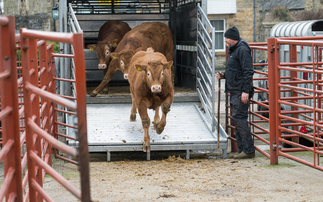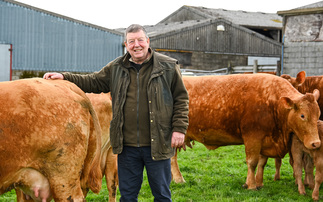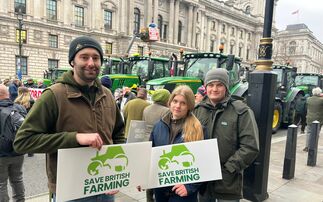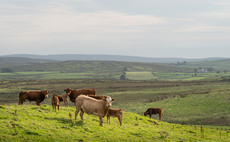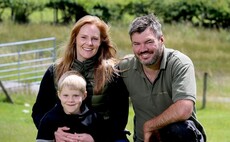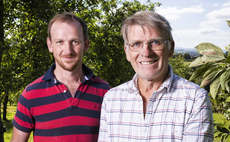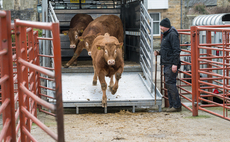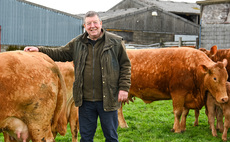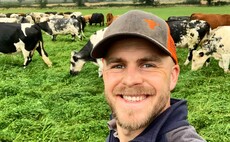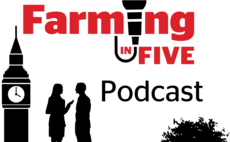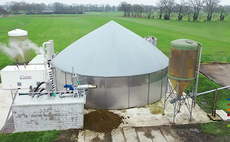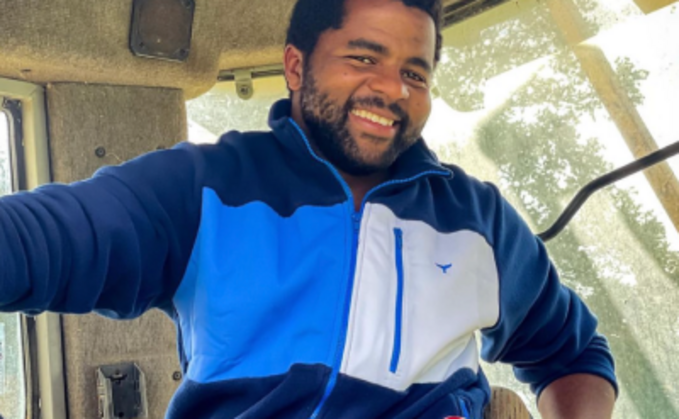
Dylan Vetara hopes to show that the industry is full of opportunities
Talk to anyone in farming and they will have a unique story to tell. Whether that be of generations of farming ancestors or accidentally finding themselves in the industry, we are certainly a varied - and interesting - bunch.
And that is what makes our industry so special; the network of people which makes up the rural community confirms that farming is vibrant, modern and, as the saying goes, the place to be.
Dylan Vetara's story is one which can without doubt inspire others, with his far-reaching roots back to Namibia in southwest Africa.
See also: What is #FarmingCAN? Put farming in the spotlight and help to share agriculture's message
Dylan has become one of farming's social media shining stars, with almost 12,000 followers on Instagram and almost 180,000 followers on TikTok.
It is no wonder, really. He is representative of a generation which is here to tell the world that farming is not stuck in the past and, if you want, there is a place for you, and social media is the perfect place to spread that message.
Born and raised on a 6,070-hectare (15,000-acre) beef and game farm in Namibia, his mother, who was British, decided to move back to the UK about 20 years ago.
Then 10 years ago, towards the end of school, Dylan came over and joined her, embarking on a new educational journey at Brinsbury College studying agriculture.
See also: Starting out simple allows new entrants to flourish
Dylan, 27, says: "For me it was like when young farmers go and work and travel in New Zealand or Australia - I just ended up staying longer.
"College helped to bridge the gap, because although I am from a farming background, farming in Namibia is different.
"I agree that 15,000 acres sounds like a lot, but it is vast. Namibia has the lowest rainfall, there are wild animals to contend with and it is a very extensive system.
"Coming out of college I had a good knowledge of British agriculture."
Proactive in his pursuit of his farming career, Dylan took on various roles - his philosophy is to try ‘my hand at most of the farming systems'.
A stint in dairy made him realise that sector was not for him, but while on a college placement, he visited a mixed farm in West Sussex which changed the course of his farming journey.
And this is something he is keen to tell others; that people in farming are willing to give these chances to those who are interested.
Dylan says: "While I was studying, I ended up on a mixed farm and stayed for about seven years.
"The farmer there was an amazing teacher and he did not just teach me about farming, but about the relationships [you form in the industry] and I would not have known that otherwise.
"Last September I felt I had reached my peak there and that I had progressed and learned as much as I could. So, I moved to an arable farm and am trying my hand at contracting in Kent.
"I have made mistakes, but each and every one has led me to where I am today and I am happy."
As for his social media presence, that was kind of accidental, but a testament to his ability to showcase the joy he finds in farming.
Social media also gives the industry a chance to spread our message far and wide.
He says: "You only have to look at the number of young farmers who like sharing what they are doing. They are leading in full force and all like showing what they are doing - the good, the bad and the ugly.
"I am not a social media person, so there is no structure, I just be myself. I do it for pure enjoyment and hope it entertains, educates and inspires."
Dylan hopes, though, that his story will show others that the industry is open to everyone and the idea that farming is a closed book is no longer the case.
The only way we are going to continue to attract new talent is if others can see themselves in the industry.
He says: "It is all about the image. Being a person of colour, if you are a child and you love animals and the outdoors, but you look at the industry and do not see someone who looks like you, you will not want to try it.
"I would use the example of the blockbuster film Wakanda Forever. People felt proud to see a superhero that looked like them because it had never been done. It makes you push on and you know it is an option.
"Black farmers need to put themselves out there to show there are people who look like us in the industry. We have a bad image in schools - it is not just manual labour.
"There are research jobs, genetics; these all come under the agricultural umbrella. I love the variety, and yes it might be windy and wet sometimes, but the experiences, the views and the sunsets are to die for."
It is perhaps down to those interested in the industry too to go and find their own experiences, because there are farmers willing to help, Dylan says.
Take a look at his story and it shows there are opportunities.
Dylan says: "There are so many people interested and willing to help and teach; I do not think farmers would turn people away.
"There are a few - and I mean a tiny minority - who have not fully embraced [change] and still of the thinking that ‘well, we have always done it this way'. But as a general rule, the farming community is very welcoming."
Get involved in Farming CAN and share farming's message
#FarmingCAN is a consumer facing campaign which aims to tell the public of the value of agriculture across society. If you want to take part and share farming's story, visit farmersguardian.com/FarmingCAN












